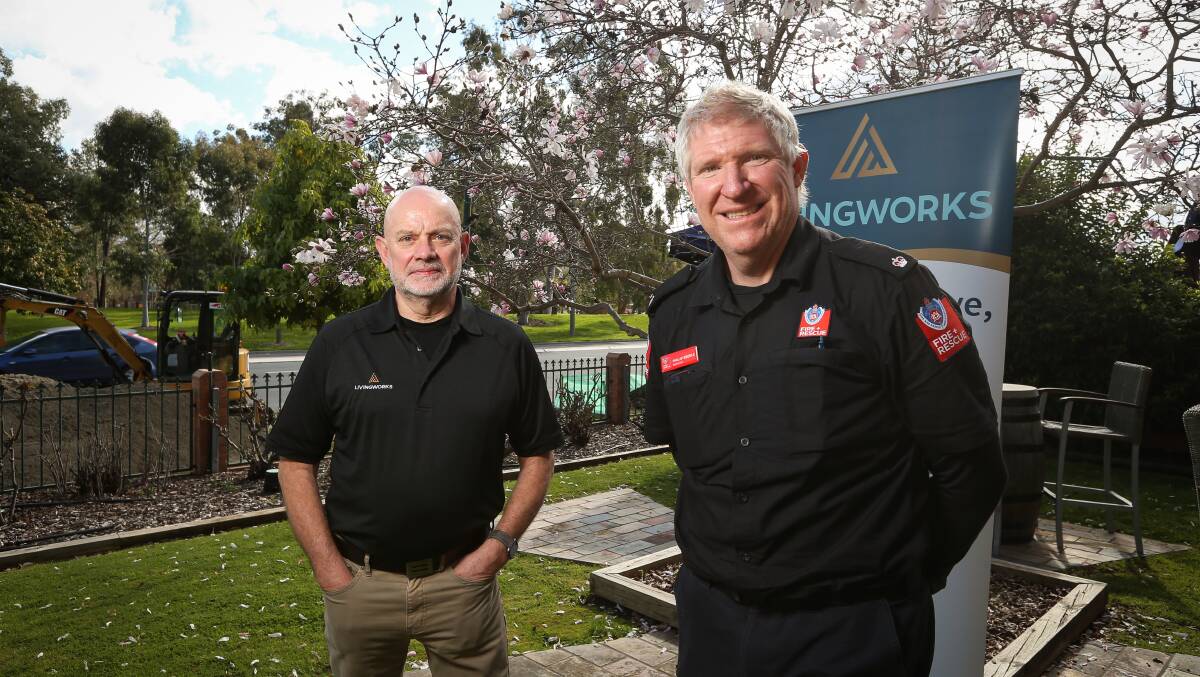
A fire fighter who attended a first responders suicide first aid training course in Albury yesterday says he has been having weekly to monthly conversations with suicidal people, even before the 2019/2020 summer bushfires.
Subscribe now for unlimited access.
or signup to continue reading
Fire and Rescue NSW inspector Phillip Eberle participated in three and a half hour LivingWorks SafeTalk workshop at the Hovell Tree Inn yesterday to learn how to speak to people considering suicide and support them to get help.
Mr Eberle said he chose to go to the session because it was pertinent to people in the emergency services.
"People need to be safe at having the conversation with a friend or colleague to maybe save a life or change their life for the better," he said.
"I learnt that what I've currently been training to do is a good thing and having that conversation with somebody and asking them are they considering suicide is not a hard conversation.
"I'm having that conversation on a weekly and monthly basis.
"And I learnt the different signs that indicate a friend, a colleague or a person might be asking for help, without actually saying it."
IN OTHER NEWS:
Training facilitator Chris Pidd said the program was targeted at first responders and their families for a number of reasons.
"We know that emergency services are often the people in direct contact with people that are actively suicidal or having direct thoughts of suicide," he said.
"The other thing is we know first responders are actually at risk of suicide themselves, and their families, through all the work that they do.
"So this is important from both perspectives."
Mr Pidd said the last 18 months had made it more difficult for people to access supports after a particularly difficult period.
"People went into the bushfires already struggling in some way shape or another, potentially," he said.
"Some of those communities were in significant drought, so it had an impact on their workplaces and colleagues anyway, they then went through the bushfires and not long afterwards we went into significant COVID-19 restrictions.
"That's meant it's been harder for people to reach out and get that one on one support."
Mr Pidd said first responders had been attending the session for professional development, but also to seek personal support.
"Not that we're providing counselling sessions, but there are opportunities to have conversations with people about just how they're feeling and how they're tracking," he said.
"And to connect them in with other services."
- Lifeline: 13 11 14
Our journalists work hard to provide local, up-to-date news to the community. This is how you can continue to access our trusted content:
- Bookmark https://www.bordermail.com.au/
- Make sure you are signed up for our breaking and regular headlines newsletters
- Follow us on Twitter: @bordermail
- Follow us on Instagram @bordermail
- Follow us on Google News.


